Diagnosing Gender Norms in Financial Inclusion – What Are We Learning?
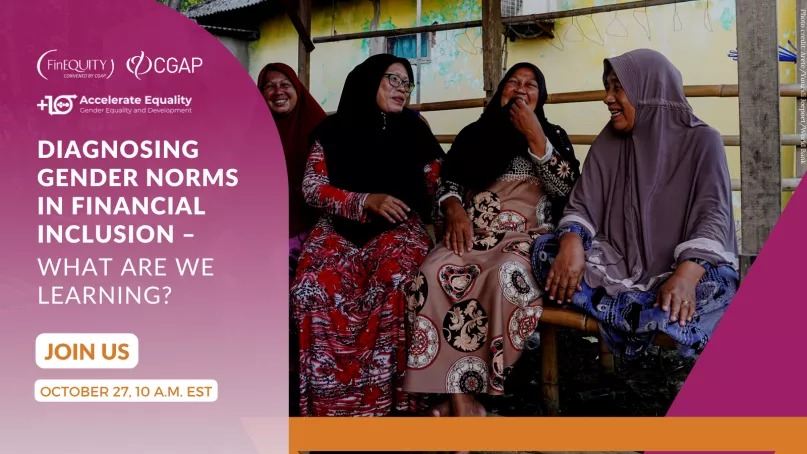
The barriers to women’s financial inclusion are complex and multifaceted, ranging from deep-rooted social norms to regulatory hurdles and supply-side challenges. However, there is growing recognition of the important role gendered social norms (gender norms) play in influencing how women access, use and benefit from financial services and how gender norms contribute to consistently lower rates of financial inclusion among women.
Creating more gender-inclusive financial systems that address specific constraints that limit women’s finances due to gender norms is critical to creating opportunities for women and increasing their resilience through financial services. Although there is growing recognition that gender norms influence women’s financial inclusion and economic empowerment, there are few resources and tools to systematically unpack how norms shape the behavior of women and the behavior of other financial system actors.
To address this gap, CGAP and FinEquity convened a peer learning effort (CoLab) that brought together funders and facilitators from six different countries to test and refine a gender norms diagnostic approach developed by CGAP and MarketShare Associates (MSA). Lessons were learned around the distinct research approach, required skills, successes and challenges to overcome in the diganostic process. These ranged from learnings around framing research starting with defining the financial inclusion outcomes for the specific target group of women to designing research tools such as vignettes that help us understand how gender norms shape behavior. Peer learning group partners in the six different markets found that while there was some similarity in the norms at play, the influence of the norms on the behavior of the target group of women varied based on context. It is important to understand these differences to ensure that results are used in the right way to identify entry points for interventions.
This dynamic webinar gave us a chance to hear from the participants of the CoLab as they shared lessons learned about how to diagnose gender norms, their findings and how they plan to use these findings in their own effort to advance women’s financial inclusion and economic empowerment.
Webinar Resources
Gender Norms in Financial Inclusion: Diagnostic Guidance
Addressing Gender Norms to Increase Financial Inclusion: Designing for Impact
Gender Norms in Financial Inclusion : A Diagnostic Study from Southeastern Turkey
Personas Show How Social Norms Impact Women’s Financial Inclusion

This event is part of the World Bank Group’s yearlong Gender Equality and Development +10: Accelerate Equality initiative, which explores the important progress made and lessons learned over the last 10 years in closing gender gaps and promoting girl's and women's empowerment and drives for transformative change in the future.
It provides an opportunity to showcase successes, learn, and develop ideas and further momentum for the future of gender equality and women’s leadership, while taking stock of remaining challenges and strengthening partnerships in the quest to #AccelerateEquality.
About this event
Online
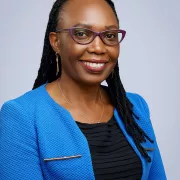
Emily Akoth
Emily is the Gender and Inclusion Specialist at Access to Finance Rwanda (AFR). She has extensive experience in human rights-based approaches to programming with a technical background in gender, women’s empowerment, youth, climate change, governance, and social accountability. She is highly experienced in developing gender-responsive policies, gender mainstreaming strategies, and strategic plans. Emily is adept at assessing the gender needs of a project and devising innovative strategies to effectively address those needs through gender mainstreaming, public policy influencing, and capacity building. She drew her experience from working with various international and national NGOs, Civil Society Organisations, and the Private Sector in the East African Region and beyond. Emily is a Ph.D. Research Scholar at Africa International University on Leadership and Governance.
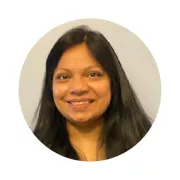
Snigdha Ali
Snigdha Ali, program officer for Bangladesh at the Gates Foundation, manages initiatives for advancing financial inclusion in Bangladesh, with a special focus on increasing women’s access to financial products and services. Prior to joining the Gates Foundation, she worked as a researcher and development practitioner and has more than 12 years of experience in gender, research and management. She has worked on cross-cutting issues impacting women like financial exclusion, nutrition, climate change, infrastructure, economic engagement, and social norms. She worked as the senior gender and research consultant at the World Bank and co-authored the book titled “Voices to Choices: Bangladesh’s Journey in Women’s Economic Empowerment,” published in 2019.
Snigdha also worked at BRAC in Bangladesh as the program head for two departments and managed two teams and six projects. She has also worked for IFPRI. She has experience in evaluating gender inclusion in the World Bank operations, organizational gender mainstreaming at BRAC, advocacy at the grassroots level, project operations, stakeholder engagement and policy advocacy at the national level. Snigdha has a master's of social science in economics from the University of Dhaka and a masters of social science in development sociology from Cornell University.
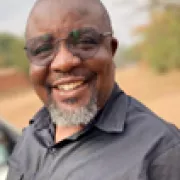
Billy Molosoni
Billy is an experienced gender and social development specialist with more than 15 years practical experience in gender transformative program management (gender analysis, design, implementation and monitoring and evaluation). He is also skilled at integrating gender, youth and social inclusion issues in development, advocacy and humanitarian programs and project. This experience has been cumulatively gained from a background of working with both international and local non-governmental organizations like, OXFAM, CARE, Malawi Government-European Union funded Income Generating Public Works Programme, Action Against Hunger, Anti-Corruption Bureau and the Story Workshop. As a gender communications specialist and creative writer, Billy has to his credit more than 200 Pakachere and Story Workshops radio plays on gender, that were aired on Malawi’s national broadcasting houses. He has used these stories to facilitate debate and reflection of gender power relations and other social change issues. Billy was the Lead Researcher for the JP-GTA funded Social Norms Diagnostics on Women and Youth VSL Members’ Access to Formal Financial Services and Products in Malawi.
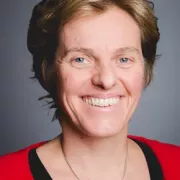
Antonique Koning
Antonique Koning has more than 20 years of experience working on a range of topics related to microfinance and financial inclusion and currently serves as CGAP’s Gender Lead. Antonique has expertise in consumer protection and responsible finance, customer centricity and empowerment. She is also involved in CGAP’s member engagement. Antonique led CGAP’s work on customer protection and value and is a contributor to CGAP’s Customer Centric Guide. She has strong experience in program management and coordination, having led CGAP’s Africa team and managed a Euro 15 million capacity-building program for microfinance actors in Africa, the Caribbean, and the Pacific Islands. Before joining CGAP in 2004, she gained hands-on experience developing and implementing microcredit programs in El Salvador and working with savings banks globally. Antonique has a Master’s degree in International Trade Management and Policy from the University of Birmingham and a Master’s degree in Applied Economics from the Katholieke Universiteit Leuven. She is based in Belgium, and speaks Spanish, French, and Dutch.